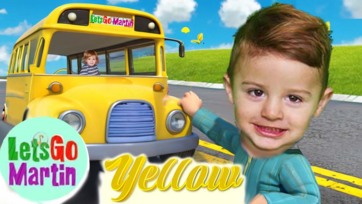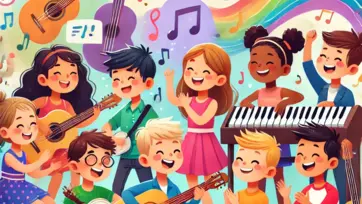Teaching Responsibility and Care for Animals to Kids
Teaching children about responsibility and the importance of caring for animals is a valuable life lesson. It helps them develop empathy, respect, and an understanding of the needs of living creatures. Pets can be wonderful companions for children, and by caring for them, kids learn not only about animal welfare but also about their own roles in ensuring the well-being of others. Music can be an engaging and fun way to introduce these concepts to children, making the learning process enjoyable and interactive.
The Importance of Responsibility in Pet Care
Owning a pet is a big responsibility. Pets rely on humans for food, shelter, medical care, and companionship. Teaching children these responsibilities from a young age helps them understand the commitment involved in caring for a living being. Music videos and songs focused on animals can help children grasp the importance of feeding, grooming, and exercising their pets regularly.
For example, songs about feeding pets, brushing their fur, or cleaning up after them can turn these chores into fun activities. The rhythm and repetition of songs make it easier for kids to remember important tasks and incorporate them into their daily routines. By associating these actions with enjoyable music, children are more likely to take them seriously and approach them with enthusiasm.
Building Empathy Through Animal Care
One of the most significant lessons children learn from caring for animals is empathy. When kids take care of a pet, they begin to understand the emotional and physical needs of others. They learn that animals have feelings, require attention, and need love just like humans. Music is a powerful tool for conveying emotions, and songs about animal care can help children develop a deeper emotional connection to their pets.
For example, a song about a dog’s need for attention or a cat’s love for playtime can teach children the emotional aspects of pet ownership. When children see how happy their pets are when they care for them, they begin to understand the importance of kindness and compassion. Through these lessons, children learn to respect animals and treat them with the care they deserve.
Songs That Teach About Different Animals
Learning about different types of animals and their behaviors is another important aspect of teaching responsibility. Music can make this educational process enjoyable by introducing children to various animals and their unique needs. Songs about farm animals, wild animals, or even exotic pets can help kids understand the diversity of creatures in the animal kingdom.
For instance, a song about the different sounds that animals make or a story about the daily routine of a farm animal can teach children about the specific care needs of each animal. These songs can also highlight the differences in habitats, diets, and behaviors, helping kids become more knowledgeable about animals in a fun and memorable way. By using music, children can connect emotionally with animals and better understand their role in caring for them.
Promoting the Importance of Compassion and Respect
In addition to responsibility, caring for animals teaches children about compassion and respect for all living creatures. Children learn that it’s not just about meeting the basic needs of an animal, but also about recognizing their emotional needs and treating them with kindness. Music can convey messages of compassion and respect, reinforcing the importance of these values in a fun and accessible way.
For example, a song about the kindness needed when approaching an animal or a song about understanding when a pet needs space can teach children the subtleties of animal behavior. These lessons are not only important for animal care but also for developing a child’s social and emotional skills, as they learn to treat both animals and people with empathy and respect.
Teaching the Long-Term Commitment of Pet Ownership
Owning a pet is a long-term commitment, and it’s important for children to understand that caring for an animal requires ongoing effort and dedication. Music can help reinforce this message by telling stories through songs about how pets rely on their owners every day, from feeding them in the morning to providing companionship at night.
Through fun and catchy tunes, children can learn that owning a pet is not just a temporary activity but a lifelong responsibility. By introducing the idea of long-term care in an engaging way, children begin to understand that pets require constant attention and commitment, helping them grow into more responsible and conscientious pet owners.
Incorporating Animal Care into Daily Routines with Music
Just like with any other responsibility, it’s important for children to incorporate pet care into their daily routines. Music can serve as a helpful reminder to ensure that animal care is not forgotten. A song about pet care can signal to children when it’s time to feed the pets, clean their living spaces, or take them for a walk. This makes the process easier for kids to remember and helps establish positive habits early on.
Music can also be used to make animal care tasks more enjoyable, turning them into a fun part of the daily routine. When children sing along while performing these tasks, they associate them with positive feelings, which can make the whole process less of a chore and more of an enjoyable activity.
Fostering a Sense of Accomplishment
Finally, teaching children about pet care fosters a sense of accomplishment and pride. When kids take responsibility for an animal’s well-being, they feel proud of their ability to meet the needs of their pets. Music can celebrate this achievement by providing a sense of reward and satisfaction.
For instance, after completing a task like feeding the pet or cleaning its area, a song of praise or a celebratory tune can be played to highlight the child’s accomplishment. This reinforces the idea that taking care of pets is not only a responsibility but also an opportunity for children to feel proud of their role as a caregiver.





